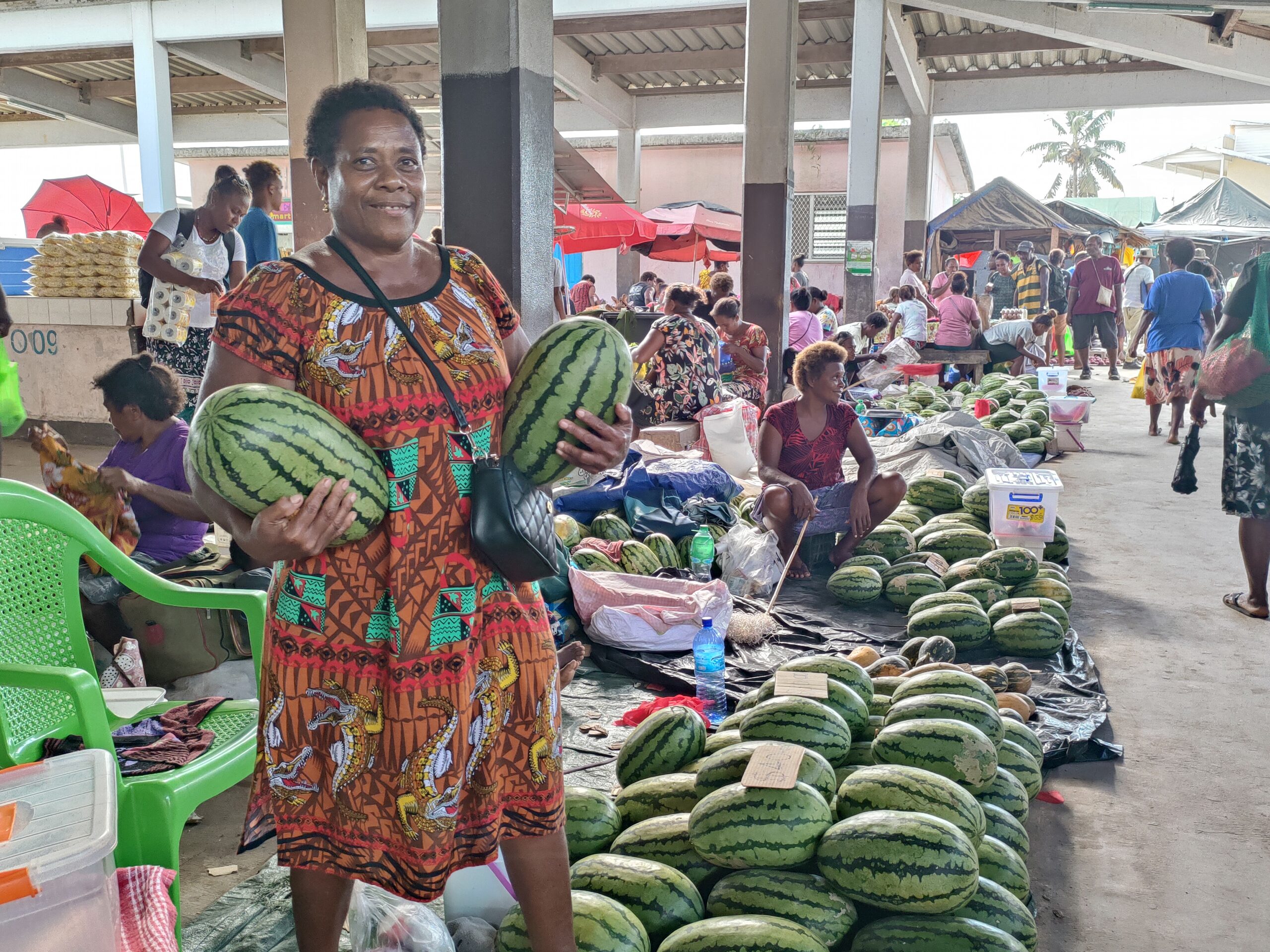
Right business choices and commitment can result in fulfilled dreams. Florence Sedi testifies to this when she built two permanent homes in her village from watermelon small-scale farming.
In Kakara village, West Kwarae Malaita Province, Florence Sedi started her dream in 1998. She commenced her small watermelon farm and started reaping lucrative returns.
She knew, over time and with commitment, that she could achieve her primary goal of building a permanent home for her family.
She said this commercially viable crop is easy to cultivate and manage. She cultivates two types of watermelons: baby melons, known for their resilience against harsh weather, and big-seeded melons, which she said are favored by customers.
Ensuring her watermelons thrive, she enriches the soil with chicken manure and applies chemicals to protect them against pests and diseases. “I check my farm every day to ensure the plants are healthy,” she shares.
She admitted that weather changes can be a significant challenge. Excessive rain can damage the plants. “If it rains too much, the leaves turn yellow, young fruits fall off, and the plant can die,” she explains. Florence also provides careful watering for her young plants, being careful not to overwater them. “Those are simple management needs to nurture the crop.
Once the watermelons are ready for sale, transporting them to the market presents another hurdle due to high costs,” she said.
She sells her melons in Auki and Honiara, where her main buyers include restaurants, catering groups, and local Chinese businesses. The selling price varies with size—the larger melons fetch a higher price. Transporting her watermelons to Honiara can cost up to $6,000, covering truck fares, shipping fees, and market costs.
Despite the expenses, Florence works diligently to ensure her melons reach their destination with such a huge commitment comes significant returns. Large watermelons are always sold for $80 to $100 each. Medium size fruits are normally priced at $50 to $60 each and smaller ones for $30 to $40. A bulky consignment of over 100 fruits can fetch up to $10,000.
With steady earnings from her watermelon sales over the years, Florence started purchasing building materials and got the construction of her first three-bedroom home started in 2000.
Luck seemed to be on her side as her business continued to produce positive results without disturbances from bad weather or pests. She recently completed another two-bedroom house as a result. Her homes are the fruits of careful financial planning.

“Many people spend their money on food or clothes, but I always prioritize building a house,” she reflects. Her story illustrates how thoughtful planning and effort can lead to remarkable changes in family life.
But the journey was not as easy as it sounds. Everything comes with its challenges. Pests and diseases are constant threats to watermelon farming.
“I have to resort to the use of chemicals to protect plants from pests. Additionally, limited land availability constrains her ability to expand, compelling her to focus on maintaining soil health through the addition of chicken manure.”
Despite these obstacles, Florence encourages others to consider watermelon farming. “Watermelon farming is a great way to earn an income while staying at home. You can use your own land to generate earnings,” she states.
Florence plans to continue her watermelon farming journey and further improve her soil quality. Although expansion is not feasible, she is committed to enhancing her land’s productivity.
Her advice to new farmers is to plan carefully, nurture their crops, and save their profits wisely. “Good financial management is key,” she stressed.
Florence’s success serves as an inspiration to her family and community. Her journey demonstrates that farming approached with diligence and foresight, can significantly enhance lives.
For Florence, watermelon farming is more than just a job; it has enabled her to achieve her dreams and provide a brighter future for her family.
Her story proves that goals can be achieved with determination and commitment.
By Leslie Sanga

